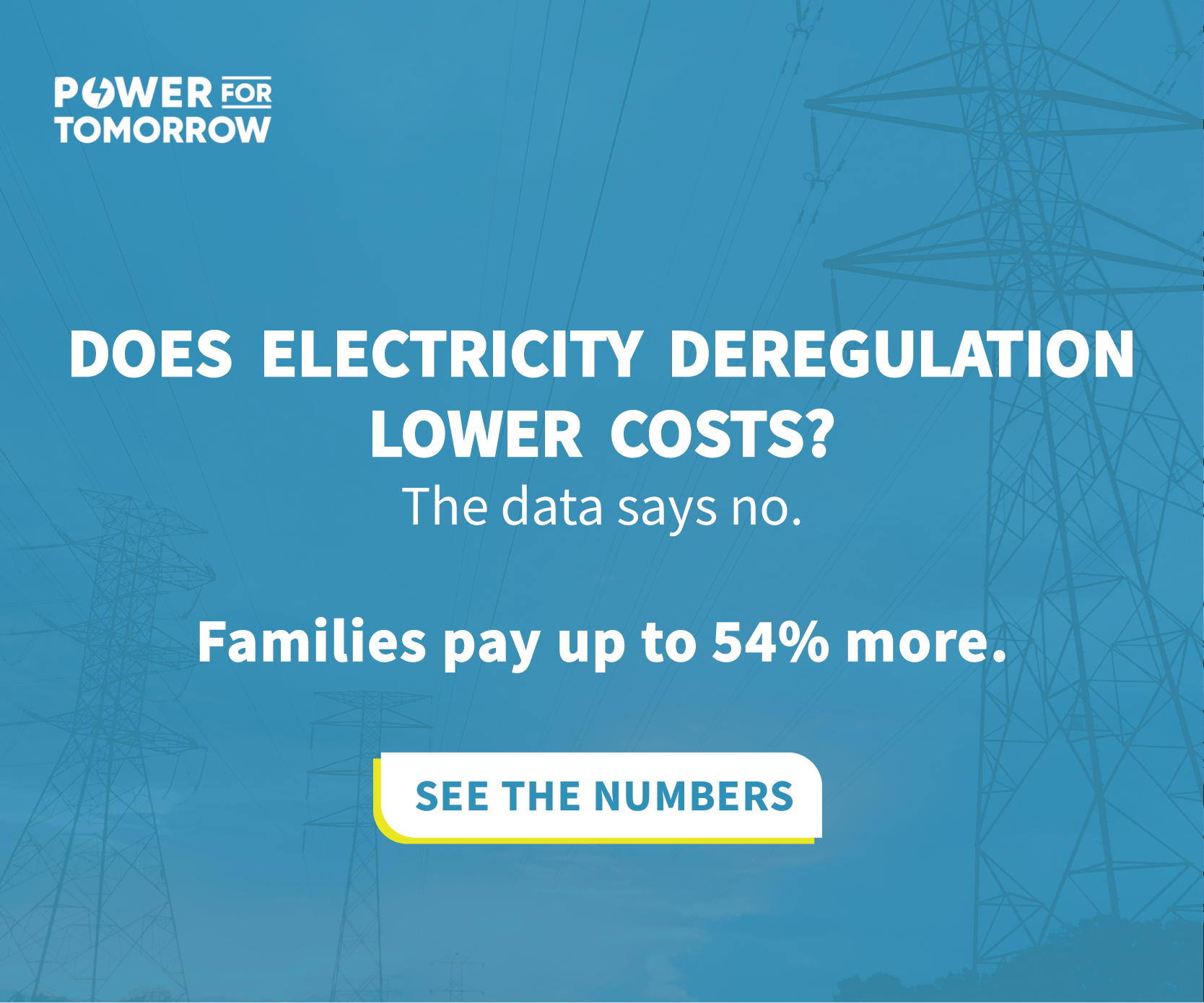Pricing Data Confirms Families Pay More in Deregulated Electricity States
For years, proponents of electricity deregulation have argued that competition lowers costs for consumers. New data tells a very different story.
According to new proprietary analysis by Power for Tomorrow (PFT), informed by 2024 Energy Information Administration (EIA) data, residential customers in deregulated electricity states are paying dramatically more for power than those in traditionally regulated markets.
Read More
Poll: Louisiana Voters Reject Electricity Deregulation Once They Learn the Facts
A recent poll of Louisiana voters, conducted by Peak Insights, reveals a striking trend: while many initially support electricity deregulation, that support collapses once they learn what it actually means.
Read More
Report: At the Precipice: The Perils of Utility Restructuring
Within the traditional utility regulatory model, utilities receive a franchise to provide electricity to an entire geographic area, planning for reliable power and relatively predictable prices for consumers.
Two decades ago, a wave of utility restructuring swept parts of the country. With it came different “flavors” of utility regulation. Some states permitted their utilities to participate in wholesale power markets, with competition between electric generators administered by Regional Transmission Organizations (RTOs) and Independent System Operators (ISOs).In some cases, states went even further and “deregulated” their utilities through full “unbundling,” which included a divestiture of generation assets to third party operators and enactment of electricity “retail choice.”
Most prominent were Texas and several states in the Northeast and Midwest. Advocates of deregulation promised more competition, innovation, reliable service and lower consumer prices.
Deregulation has not delivered on those promises.
Read More


